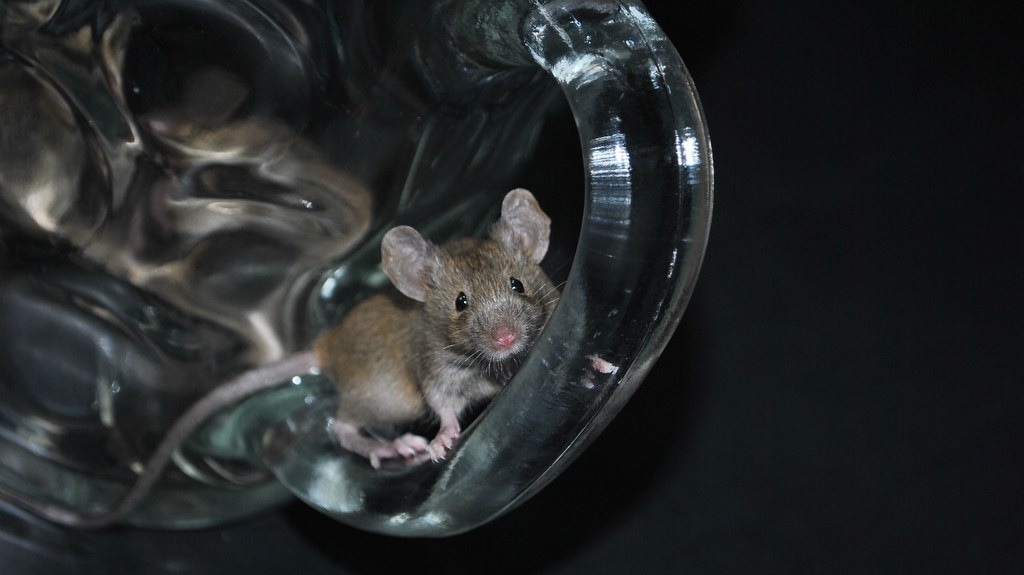According to scientists, the gut microbiome—a colony of bacteria that inhabits the digestive system—can be altered by the host body’s genes in addition to nutrition and environment.
 The researchers studied house mouse hybrids, which are more genetically diverse than their lab-bred relatives. Image Credit: MPI-EB
The researchers studied house mouse hybrids, which are more genetically diverse than their lab-bred relatives. Image Credit: MPI-EB
Analyzing the microbiomes of house mice, a group of researchers from the UK and Germany discovered that the genetic makeup of the mouse host had a major impact on the composition of the bacteria in the gut, with several species being genetically determined from one generation to the next.
Additionally, they discovered evidence that the mouse hosts and these microbes are changing and evolving together.
They examined the relationships between the gut microbiome and genes connected to human diseases, such as Inflammatory Bowel Disease (IBD), and discovered that these genes were in fact grouped in the regions of the genome linked to the composition of the gut microbiome.
The researchers evaluated the profusion of gut bacteria present in hybrid mouse strains and examined the connections between the diversity of the microbes and the genetics of their mouse hosts in a study published in the journal eLife.
It is interesting to note that they discovered that bacteria reported to co-diversify across mammalian hosts were more inclined to be inherited, which raises the possibility of co-evolution with these specific species.
House mice hybrids, which are more genetically diverse than their laboratory-bred relatives, were studied by a team of scientists from the Section for Evolutionary Medicine at Kiel University and the Max Planck Institute for Evolutionary Biology (MPI-EB) in Plön, led by Professor John Baines. They were also joined by Dr Leslie Turner from the University of Bath.
The mice were given the same diet so that genetics rather than their environment could be used to explain any similarities or differences in the microbiomes.
Previous mapping studies of the gut microbiome in mice were largely based on inbred lab strains which had limited genetic diversity and lacked some of their native microbes.”
Dr Leslie Turner, Lecturer, Milner Centre for Evolution, University of Bath
Dr Turner added, “Hybrid mice derived from the wild on the other hand, are more genetically varied and retain similarity to their wild microbiome. Thus, our study had a greater chance to capture ongoing evolutionary processes in nature.”
Although research on the genetic mapping of the gut microbiome in mice has been done in the past, this is the first time it has been done with wild hybrid mice.
“Studying lab mice vs wild mice is a bit like looking at dogs instead of wolves. Although some of the genes we discovered were previously highlighted as candidates contributing to gut disease in lab mice studies, we also identified several novel candidate genes that could be involved in gut-related conditions,” Dr Turner stated.
Dr Turner further stated, “Next, we want to look at these new candidate genes in more detail to find out their exact role in maintaining a relationship with microbes.”
Our genetic mapping revealed more than 400 gene regions associated with changes in abundance in about 120 different bacterial taxa within the microbiome. We were able to narrow down this large number to about 80 high-confidence candidate genes, many of which are known to be involved in recognition and communication with bacteria.”
Dr Shauni Doms, Study First Author, Max Planck Institute for Evolutionary Biology
“Our study is the first to establish a relationship between heritability and the degree of diversification of bacteria with their hosts during the speciation process. We hope that a better understanding of the genetic architecture of host-microbe interactions in mice could help give us new perspectives on human gut-related conditions, and provide new insights into treatment and management of these disorders,” Dr Turner concluded.
Source:
Journal reference:
Doms, S, et al (2022) Key features of the genetic architecture and evolution of host-microbe interactions revealed by high-resolution genetic mapping of the mucosa-associated gut microbiome in hybrid mice. eLife. doi:10.7554/eLife.75419